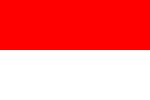The Role of the World Health Organization in Addressing the Issue of Female Genital Mutilation in Sierra Leone
Peran World Health Organization dalam Menangani Isu Female Genital Mutilation di Sierra Leone
Abstract
This study describes the role of WHO in explaining the issue of Female Genital Mutilation in Sierra Leone. In this study, this study discusses the role of WHO through CEDAW and the Maputo Protocol which has been ratified by Sierra Leone in the implementation of FGM practices that involve the culture of the Sierra Leone community for women's processes to drive international movements and activities. FGM culture itself is a form against women. This study uses a qualitative method, with a descriptive analytic approach, where data are collected by literature study. In explaining this research, the researcher obtained data through journals, books, theses, scientific reports, the internet and government reports as well as international organization responses submitted to FGM in Sierra Leone. Theories used are human rights, international organizations and roles. The data obtained are then classified and analyzed using the theory used to draw conclusions. From the results of the analysis, the researchers concluded that the application of cedaw by the Sierra Leone government on the issue of eliminating Female Genital Mutilation not implemented well by the Sierra Leone government because the government does not include laws governing national laws related to the implementation of traditional agreements involving FGM. The government's reason is feared as its national interest.
Downloads
References
TOOMANY. (2018, September). Sierra Leone: The Law and FGM. Diambil kembali dari 28TOOMANY: https://www.28toomany.org/static/media/uploads/Law%20Reports/sierra_leone_law_report_v1_(september_2018).pdf
Anadia, F. P. (2017). Implementasi Kebijakan WHO (World Helath Organization) di Benin. Universitas Pasundan.
Aprinanda. (2016). Peran UNCHR Dalam Menangani Pengungsi Suriah Di Lebanon. Scholar Universitas Andalas, 15-17.
Creswell, J. W. (2010). Research Design Pendekatan Kualitatif, Kuantitatif, dan Mixed. Yogyakarta: Pustaka Pelajar.
EqualityNow. (2020, June 29). Learn More: FGM in Sierra Leone. Diambil kembali dari A Just World For Women and Girls: https://www.equalitynow.org/learn_more_fgm_in_sierra_leone
EqualityNow. (2020, June 20). Sierra Leone: Enact a Comprehensive Anti-FGM Law. Diambil kembali dari https://www.equalitynow.org/sierra_leone_enact_a_comprehensive_anti_fgm_law#:~:text=Sierra%20Leone%20does%20not%20presently,part%20in%20certain%20community%20functions.
Irianto, S. (2006). Perempuan dan Hukum: Menuju Hukum yang Berperspektif Kesetaraan dan Keadilan. Jakarta: Yayasan Obor Indonesia.
Kusuma, A. J., & Sitorus, F. E. (2019). Strategi Diplomasi Kemanusiaan Pemerintah Indonesia Dalam Kasus Krisis Kemanusiaan Yang Dialami Etnis Rohingya Di Myanmar Tahun 2017. MANDALA, 151-168.
Nations, U. (1979, December 18). Convention on the Elimination of All Forms of Discrimination against Women New York, 18 December 1979. Diambil kembali dari United Nations: https://www.ohchr.org/EN/ProfessionalInterest/Pages/CEDAW.aspx
Nations, U. (1995, August). Harmful Traditional Practices Affecting The Health of Women And Children. Diambil kembali dari United Nations Office of The High Commissioner for Human Rights: https://www.un.org/ruleoflaw/blog/document/harmful-traditional-practices-affecting-the-health-of-women-and-children-fact-sheet-no-23/
Ningtias, D. A. (2017). Implementasi Convention on the Elemination of All Form of Discrimination Against Women (CEDAW) Dalam Penghapusan Praktik Female Genital Mutilation (FGM) Di Sierra Leone Tahun 2008-2013. Repository Universitas Riau JOM Fisip, 3.
Refworld. (2020, July 15). Fact Sheet No. 23, Harmful Traditional Practices Affecting the Health of Women and Children. Diambil kembali dari Refworld: https://www.refworld.org/docid/479477410.html
Saputri, R. A., & Tumangger, J. (2019). HULU-HILIR PENANGGULANGAN STUNTING DI INDONESIA. JPI: Jurnal of Political Issues, 1-9. https://doi.org/10.33019/jpi.v1i1.2
Satrio, A. (2008). Peran PBB Sebagai Organisasi Internasional Dalam Penyelesaian Perang Internal Di Sierra Leone. FISIP UI, 13.
This is Africa. (2016, August 19). Diambil kembali dari This is Africa: https://thisisafrica.me/politics-and-society/sierra-leone-19-year-old-school-girl-dies-botched-fgm-operation/
UNFPA. (2017, February 6). Statement by the United Nations in Sierra Leone on the International Day of Zero Tolerance for Female Genital Mutilation. Diambil kembali dari UNFPA: https://sierraleone.unfpa.org/en/news/statement-united-nations-sierra-leone-international-day-zero-tolerance-female-genital
UNICEF, U. C. (2016). Statistical Profile on Female Genital Mutilation/cutting: Sierra Leone. Diambil kembali dari Refworld.org: https://www.refworld.org/docid/5a17d3f14.html
Union, A. (2016, April 15). Status of Implementation of the Protocol to the African Charter on Human and People’s Rights on the Rights of Women in Africa. Diambil kembali dari Relief Web International: https://reliefweb.int/report/world/status-implementation-protocol-african-charter-human-and-people-s-rights-rights-women#:~:text=As%20of%20October%202015%20however,ratified%20on%2030%20October%202015.
WHO. (2020). Female genital mutilation. Diambil kembali dari who.int: https://www.who.int/news-room/fact-sheets/detail/female-genital-mutilation
Copyright (c) 2021 Ardli Johan Kusuma, Isabella Putri Maharani

This work is licensed under a Creative Commons Attribution-NonCommercial-ShareAlike 4.0 International License.
- Authors retain copyright and grant the journal right of first publication with the work simultaneously licensed under a Creative Commons Atribusi-Non Commercial-Share Alike (CC BY-NC-SA).
- Authors are able to enter into separate, additional contractual arrangements for the non-exclusive distribution of the journal's published version of the work (e.g., post it to an institutional repository or publish it in a book), with an acknowledgement of its initial publication in this journal.
- Every publication (printed/electronic) are open access for educational purposes, research, and library. Other than the aims mentioned above, the editorial board is not responsible for copyright violation.

















